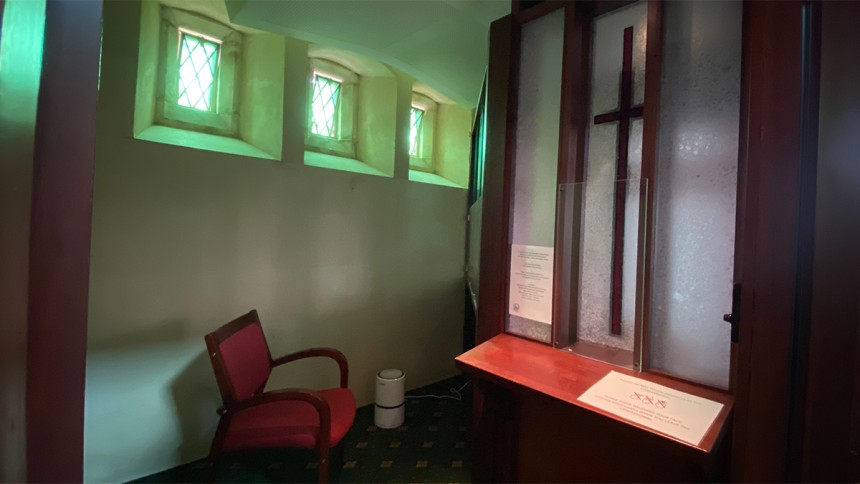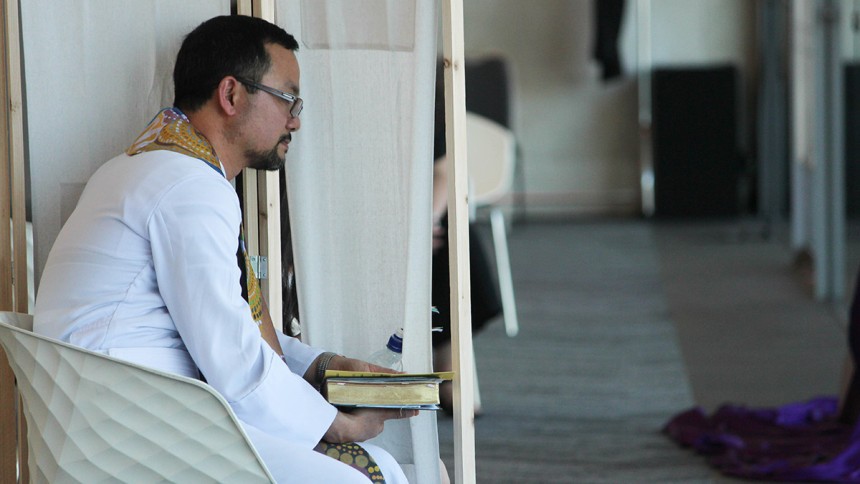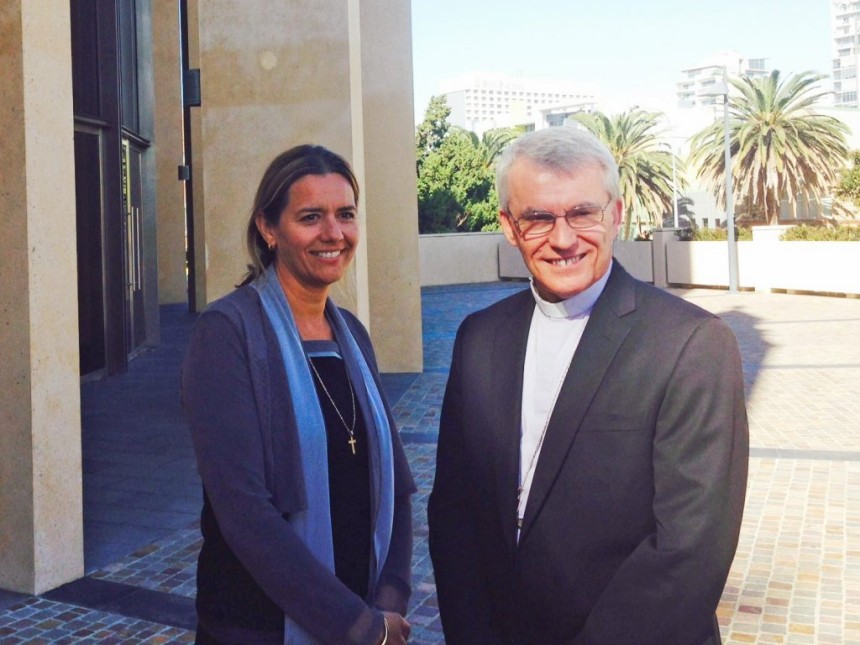EXCLUSIVE: New legislation ignores recommendations, carries no guarantee, says Archbishop Costelloe

Confessionals across Perth, like this one at St Mary’s Cathedral, have been renovated to include glass panel doors and transparent sectioning. Photo: Michelle Tan.
By Jamie O'Brien
The confessional experience is a personal encounter between that person and Christ, Perth Archbishop Timothy Costelloe SDB has said this week.
In a Pastoral Letter published Thursday 21 October, Archbishop Costelloe was speaking following the passing of legislation by the Western Australian State Parliament, removing civil law protections to the confidentiality of the seal of confession.
This decision of the state parliament, said Archbishop Costelloe, not only potentially criminalises fidelity to an essential dimension of the practice of the Catholic faith by priests but also carries with it no guarantee that any child will be better protected from abuse because of the new legislation.
“It is particularly concerning and troubling that the majority opinion of the legislative committee established by the government to look into this matter was not accepted by the parliament,” Archbishop Costelloe said.
“In a 3-2 majority decision this committee recommended that disclosures made in the context of a religious confession should not be subject to the new mandatory reporting laws,” he said.

A priest hears confessions during ACYF in 2019. The confessional experience is a personal encounter between that person and Christ, Perth Archbishop Timothy Costelloe SDB has said this week. Photo: Iceberg Media/Archdiocese of Perth.
As well as ministers of religion, the changes extend mandatory reporting laws to early childhood workers, out-of-home care workers, registered psychologists, school counsellors and youth justice workers.
Queensland and Victoria have also implemented similar legislation. The issue has been a hot topic across Australian states following the Royal Commission into Institutional Responses to Child Sexual Abuse, which released its final report to the public in late 2017.
In its investigations between 2013 and 2017, the commission found that 36 percent of abuse survivors who came forward reported abuse at Catholic institutions.
Archbishop Costelloe continued by saying that some people seem to have formed the view that if a person discloses during confession that he or she has been abused, the priest can and will do nothing.
“This is either an ignorant or a deliberately misleading presentation of the way confession is practised in the Catholic Church.
“A priest will do everything he can to provide advice, support and accompaniment if the person making the disclosure is open to this,” he said.
Priests are allowed to act if the person discloses information outside the context of confession. The priest however, according to Catholic teaching, must not betray the confidence of the person who comes to him in the confessional.
This is because, as Archbishop Costelloe explains, in Catholic teaching the priest acts in the person of Christ in this encounter.
“In a very real sense the disclosure is made to Christ who, in the person of the priest, listens, advises, encourages and assists that person in every way possible. He does not betray that person’s confidence.”
Archbishop Costelloe also speaks about what happens when someone confesses to the sin and crime of abuse.
“The priest will do everything in his power to convince the self-confessed abuser that he or she must hand him or herself in to the police.
Unlikely though it might seem that an abuser would agree to this, the possibility at least is there.
Archbishop Costelloe continues by saying that with the passage of this law it is almost inconceivable that a perpetrator would put him or herself at risk of discovery.
“Thus, any admittedly small chance a priest might have to seek to convince a perpetrator of the evil of his or her actions, and encourage or direct that person to go to the police, would be lost.
“And of course, if a perpetrator did take the “risk” of going to confession, he or she would certainly go to a priest who could not identify them, and who conducted confession in a setting which guaranteed anonymity.
Archbishop Costelloe points out that he understands many people will criticise him and the Church for its opposition to this legislative change.
“They will seek to paint the Church as unresponsive to the horror of the sexual abuse crisis within the Church. This is both inaccurate and unfair.
“The Catholic Church right across the country, and certainly here in the Archdiocese of Perth and in Western Australia generally has taken many constructive steps to address this terrible reality in the story of the Church.
The Archdiocese of Perth was the first diocese in the world to launch a Safeguarding Office in 2015, with more than 250 trained Safeguarding Officers across more than 105 parishes.

Archbishop Timothy Costelloe SDB stands in front of St Marys Cathedral with Safeguarding Office Director Andrea Muslin in 2015, ahead of the launch of the first Archdiocesan-wide Safeguarding Project. Photo: The Record.
“Those of you who have children or young people in our schools will be aware of the seriousness with which our local schools, and the Catholic Education Office which works with them, approach the question of child safety,” Archbishop Costelloe said.
Archbishop Costelloe concluded his Pastoral Letter by reassuring his dedication and commitment to three points.
“Firstly, that my own commitment to the safety and well-being of our children and young people is unwavering.
“Secondly, that we will continue to respond with openness, compassion and generosity to those who have been victims and are now survivors of the terrible crime and sin of sexual abuse by people associated with the Catholic Church.
“And thirdly that our priests will continue to put themselves at your service seeking as best they can to be living and effective signs and bearers of the presence of the Good Shepherd among you.”
READ the Pastoral Letter by Clicking Here.
More to come in next week’s edition of The eRecord
